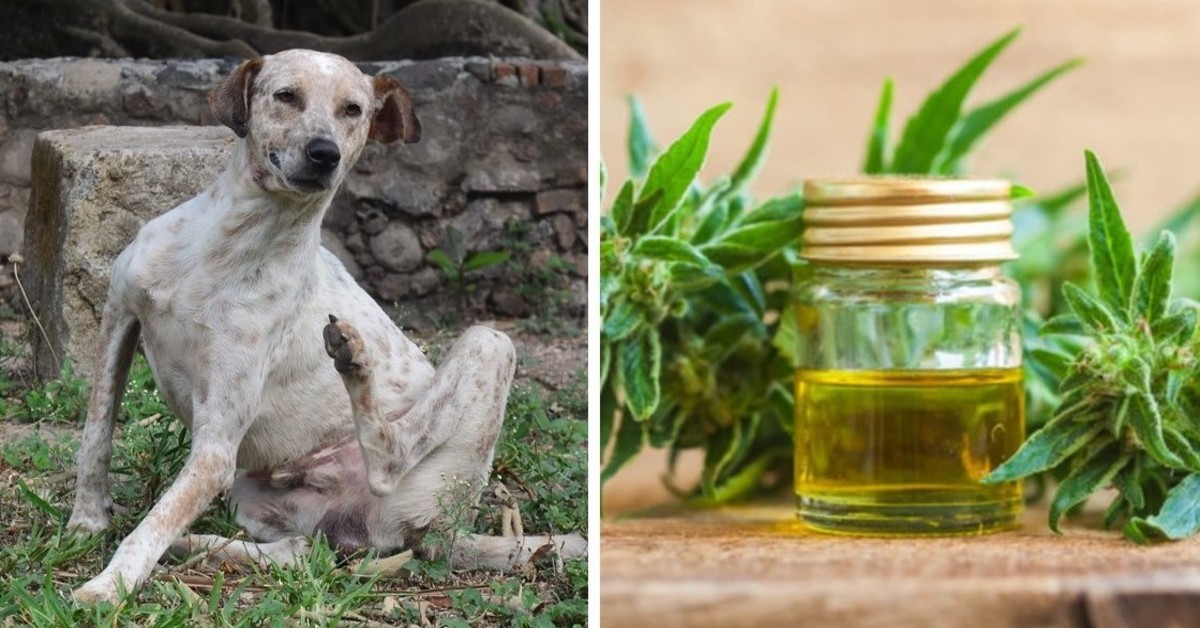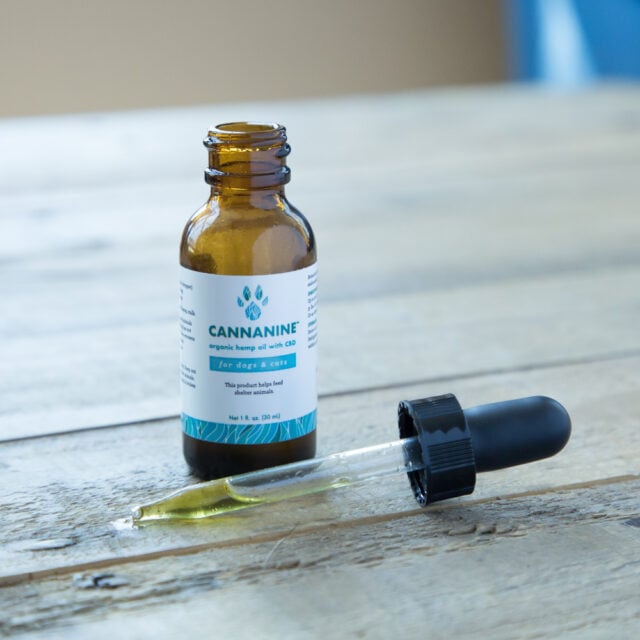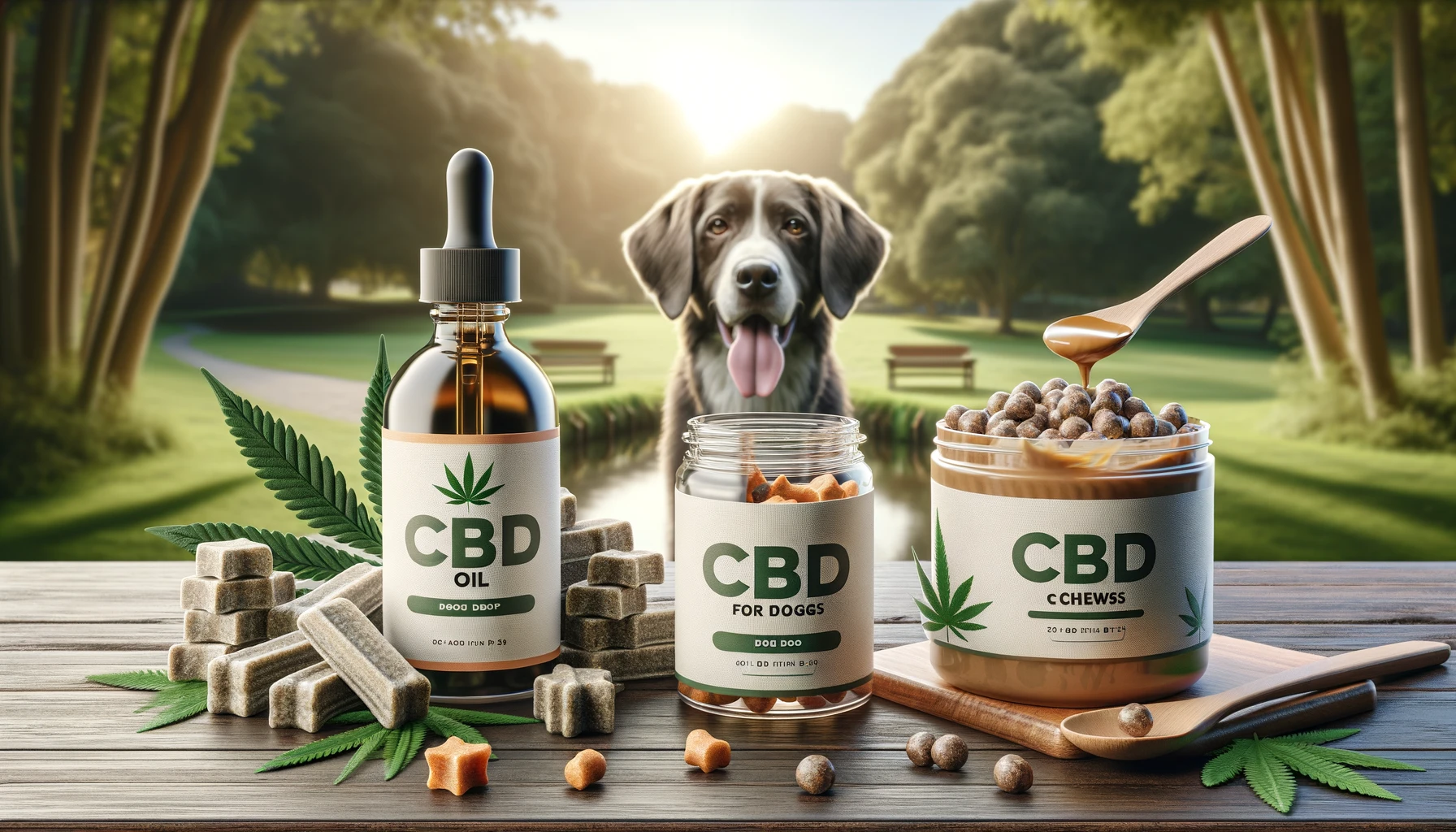
This Powerful Ingredient May Help Substantially With Your Dog’s Itchiness
Dogs lick, chew, and scratch for a number of reasons. Most commonly, an external irritant such as a flea or mosquito bite causes the initial reaction. Other causes include fungal infections and allergies.
No matter the cause, when your dog is itchy and uncomfortable, all you can think about is finding them some relief.

Why Do Dogs Suffer From Itchy Skin?
Itching is an important physiological mechanism in that it alerts us to potentially harmful agents on the skin. Whether it starts with allergies to food, environmental factors, flea bites, etc. When a dog’s itching and chewing is severe, it can lead to lesions, hair loss, or bacterial infections of the skin.
Genetics also tend to play a role in itchy, allergic skin. Certain breeds such as Cocker Spaniels, Poodles, Shih-Tzus, Bulldogs, Labrador Retrievers, and Golden Retrievers are more prone to skin disorders than others.
There are several treatment options for allergies and itching including topical therapies such as shampoos and sprays; oral medications like steroids and antihistamines; and customized allergy injections. In recent years, scientists are also exploring the potential of natural compounds like CBD for the treatment of itching.

CBD & The Endocannabinoid System
All mammals, including dogs and humans, have an endocannabinoid system (ECS) that consists of receptors throughout the body – including the organs, tissues, glands, and immune system. The receptors respond a little differently depending on where they are located, but the goal is always the same: to maintain balance in the body despite outside factors.
Compounds like CBD (cannabidiol) act upon these receptors to restore and maintain optimal health. CBD is safe and naturally-produced by plants in the cannabis family. It has been shown to help with a variety of ailments, especially those involving inflammation. Many scientists consider it the “most powerful anti-inflammatory found in nature.”

CBD Helps Sooth Itchy Skin In Two Ways:
1. CBD Reduces Inflammation
Scientific studies show that CBD naturally reduces inflammation caused by allergic dermatitis. Most people associate inflammation with painful conditions like arthritis, but inflammation and allergic skin disorders go hand-in-hand. When a dog has allergic dermatitis, the immune system responds by overproducing antibodies that rush to the surface of the skin. This results in the red, inflamed skin we associate with allergies in dogs.
CBD acts upon receptors in the ECS to interrupt this process.
2. CBD Helps Relieve Anxiety
Dogs often suffer from anxiety along with the physical discomfort of itching. This can lead to more aggressive scratching and chewing. It is a vicious cycle that makes the pain and inflammation of allergies even worse.
Luckily CBD has powerful anti-anxiety and calming effects. In fact, many dog owners first stumble upon CBD while searching for a tool to help calm their dog’s separation anxiety, travel anxiety, or noise anxiety. They are then surprised and delighted to find that it helps improve their skin as well!

Which CBD Oil Is Best For Your Dog’s Painful, Itchy Skin?
Cananine™ Organic Full Spectrum CBD Oil is made from 100% organic Colorado hemp, a great source of omega-3 fatty acids which also help with allergy symptoms. It is completely free of THC, the potentially harmful cannabinoid found in marijuana, so you never have to worry about your dog feeling “high.”
Additionally, every batch of Cannanine is tested by an impartial third-party laboratory to verify that it is THC-free and ensure there are no heavy metals, bacteria, or mold.
View the most recent Certificates of Analysis from Pro Verde Laboratories here.

H/T to Merck Veterinary Manual
These statements have not been evaluated by the Food and Drug Administration. This product is not intended to diagnose, treat, cure, or prevent any disease. The information on this website is not intended to replace a one-on-one relationship with a qualified healthcare professional.




